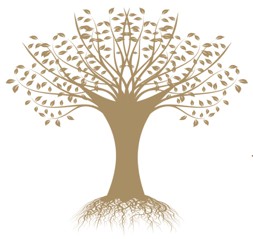By Nadia Marshall
Before I rave on about how awesome nasya is and how it's changed my life, let's begin with a quick explanation of what it is. Nasya is a sanskrit word referring to the application of medicine via the nose which is most commonly applied in the form of medicated herbal oil. It is used particularly for disorders of the head, sinuses and lungs because the nose is the gateway to these parts of the body (1).
When you have nasya done in a clinic for specific therapeutic purposes, the oil is applied while you're lying down so it penetrates quite deeply into the sinuses and is preceded by a face massage and the application of warm towels. It is also often followed by a herbal inhalation or gargle. Depending on the oil used, it can be a cleansing, detoxifying technique or more of a calming, nourishing treatment for the nervous system (4).
When doing nasya at home as part of your daily routine, it's much more straight forward. You simply warm up your nasya oil, apply a drop to your pinky, stick it up your nose, massage and then sniff. This daily approach is both cleansing and nourishing.
So now you know how easy it is to do, let me tell you why once you start doing it, you'll want to keep doing it every morning, without fail...
1) It will improve your breathing
I've never considered myself to be a 'mucousy' or 'sinusy' type of person so despite being a huge fan of Ayurveda for about 15 years, I've never bothered to do nasya before because this is what I mainly associated it with. I've applied sesame oil to my nose as part of my self-massage but I've never used proper nasya oil before... and my lord, have I missed out!
I started doing nasya about 2 months ago because we were going through a soggy spell here in Northern NSW and I found myself getting quite sneezy and stuffed up at night due to the mould spores in the air. I'd have to breath through my mouth when sleeping which was horrible and eventually even started snoring (or worse, not breathing at all) so hubby suggested I try nasya. Thank goodness! It gave me (and him) instant relief!
It's said that nasya helps remove obstacles from the nasal passages, ensuring the smooth flow of oxygen and prana (lifeforce) into the body. And this is exactly what you experience. As soon as I began the nasya, not only did I no longer get stuffed up at night, my breathing felt about 10 times better and deeper during the day as well. My nasal passages felt so clear, open and free and I even felt breathing into my belly during meditation much easier to do. The effect was instant but it has also been cumulative over time, getting better and better each day. I'm quietly confident that it'll help prevent hayfever sniffles come spring time too...
2) It will improve your sleep
If you can't breath well when you're sleeping, you don't sleep well. If you don't sleep well, you feel constantly under-par. You may then find yourself worrying about not sleeping well. All the exhaustion and worry may imbalance vata and as a result, you may find yourself waking up at vata time (2-3am) every morning and not getting back to sleep because your vata-fuelled brain is now worrying about everything. The less you sleep, the more deranged your vata becomes and the worse your sleep gets. Sound familiar?
Nasya is key to reversing this cycle. Nasya will improve your sleep not only because it enables you to breath with greater ease but because it has a directly calming effect on the nervous system. Nasya also pacifies excess vata located in the head. I've certainly noticed this since beginning this practice. I feel so much more relaxed generally and also more able to notice my thoughts and then detach from them... so I don't go down quite so many worm holes of worry (during the day or in the middle of the night).
It's important to note that if you can't breath well when you're sleeping, you may even end up with sleep apnea, leaving your body and brain starved of oxygen. We recently had a lovely doctor who specialises in sleep apnea attend one of our Mudita Retreats and he mentioned that sleep apnea is very under-diagnosed. At-home nasya can certainly help with this condition but it would be good to see a Practitioner for more in-depth treatments as well.
3) It will reduce headaches
Nasya is one of the main therapies in Ayurveda used to treat headaches. When I did Panchakarma in India in 2009, I had nasya everyday for 2 weeks followed by a funky gargle. This was to treat my chronic migraines that I had suffered from following a serious motorcycle accident in my late twenties. And it worked! I went from regular migraines to just the occasional hormonal headache once a month.
That was 8 years ago and in the last year or so, migraines have been sneaking back into my life... until I started doing nasya. Since beginning this daily practice, I've had just one headache and it went away quite quickly.
From an Ayurvedic perspective, headaches can be caused by any of the three doshas. They can be due to excess kapha or mucous and ama blocking the sinuses and causing pain. They can be due to excess vata combined with tension and stiffness in the head, neck or jaw region or they can be due to excess pitta or too much heat and intensity in the head. Migraines are often due to an of excess of vata and pitta together - tension, anxiety and intensity combining in an explosion of pain. Yuck.
Daily nasya can help to relieve tension in the head/neck/jaw area and, as mentioned, it helps to calm the central nervous system directly. It won't replace panadol when you have a headache but it will help prevent them in the first place. This is a game changer for headache sufferers!
4) It will improve clarity... and help digest emotional baggage
When you lubricate your nasal passages with warm medicated oil first thing in the morning, the oil stays there all day. It provides subtle moisture and medicine to each and every breathe we take. Herbal medicine is also absorbed directly through the capillaries embedded in the nasal mucousa producing a variety of local and systemic effects. These mucosa are then, in turn, connected to the olfactory nerve and olfactory centre of the brain. In this way, nasya can affect the higher sensory organs and cerebral faculties. It is said to enhance cerebral circulation, clarity of perception, and to stimulate memory (2).
Dr John Douillard has written about nasya's ability to even cleanse the lymphatic vessels in the brain, known as the sagittal sinus (3). The lymph in the brain is responsible for transporting nutrients and removing wastes from our brain cells so keeping the lymph clean and flowing is one of the most important things we can do for our brains. Dr Douillard points out that this relates to mood stability as well as our ability to digest experiences - both past and present (3). It also relates to our longer term brain health and avoiding conditions such as dementia and Alzheimers. So, from an Ayurvedic perspective, daily nasya is at least as important as your daily suduko or cross-word.
5) It will help balance your hormones... and everything else!
Well, I was convinced after a day of nasya to keep doing it and haven't missed a day since. After researching this little piece I'm even more convinced... but then I read this (4);
"With continuous usage Nasya improves skin texture and complexion, stops or delays graying hair and alopecia (i.e. hair loss), [bestows a clear voice, promotes lightness of the body], and strengthens the neck, shoulders and arms. Nasya is indicated for all chronic disorders of the head and neck, disorders of the brain and central nervous system, chronic upper respiratory disorders, chronic headaches and migraines, disorders of the eyes, ears, mouth, throat and the glandular structures of the head."
So let me get this straight. Nasya is going to support the glandular structures of the head... i.e. the pituitary gland and pineal gland? The pituitary gland is considered the master gland that works in conjunction with the central nervous system to control homeostasis in the body, releases a bunch of super important hormones (including growth hormone, oxytocin and the female hormones LH & FSH) and helps control body functions through the activation of other endocrine glands (like the thyroid glands which control metabolism and adrenal cortex which controls our stress response!). And the pineal gland is only in control of circadian rhythms and the release of melatonin! (5)
From an Ayurvedic perspective, vata is the physiological intelligence that governs all communication in the body, including hormones and the endocrine system. So, if nasya helps to balance vata in the head/neck/jaw region, it is helping to balance the intelligence that governs the release of hormones in these regions also. Awesome.
So aside from improving my skin, my hair, my eyesight, my hearing, my voice and my upper body strength, nasya may help balance everything from my circadian rhythms to my stress response, metabolism and lady bits (6)? Wow. I'm in! Are you?
If yes, here are the instructions, step-by-step:
NOTE: It is best to do nasya in the morning, on an empty stomach after scraping your tongue and brushing your teeth and at least 30mins before having a shower or breaky. You can purchase nasya oil from your local Ayurvedic practitioner (we sell Bioveda Anu Oil at the Mudita Health Clinic. It contains 25 herbs infused many times in black sesame oil and is appropriate for daily use).
STEP 1: Warm your nasya oil up by placing the bottle in a small cup filled with boiling water. Leave for about 30 seconds.
STEP2: Place one drop of the warmed oil on the tip of your little finger. Gently massage the inside of your nose going as deep as is comfortable.
STEP3: While blocking the other nostril sharply sniff the oil into your nose. Continue with the other nostril then repeat (so you're applying two good drops up each nostril). If any fluid or mucous comes into your mouth following the nasya, spit it out.
Rinse the mouth with warm water.
NB: If you need nasya to help treat certain conditions then there may be a better oil to use or a better time of the day to administer it. So, if in doubt, always talk to your Ayurvedic Practitioner for specific recommendations. I hope you enjoy your nasya as much as I am!
References:
1) https://www.banyanbotanicals.com/info/blog-the-banyan-insight/details/ayurvedic-insight-newsletter-29
2) http://easyayurveda.com/2013/08/12/how-to-do-ayurvedic-nasya-treatment-at-home-nasal-drops-for-long-life/
3) https://lifespa.com/ayurvedic-supplement-facts/nasya/ & https://lifespa.com/how-to-clear-your-sinuses-and-emotional-baggage/
4) http://www.kimmana.com/nasya-treatment/
5) https://en.wikipedia.org/wiki/Head_and_neck_anatomy#Endocrine_system
6) https://www.ncbi.nlm.nih.gov/pmc/articles/PMC3764886/
5 Amazing Reasons to do Nasya Daily



